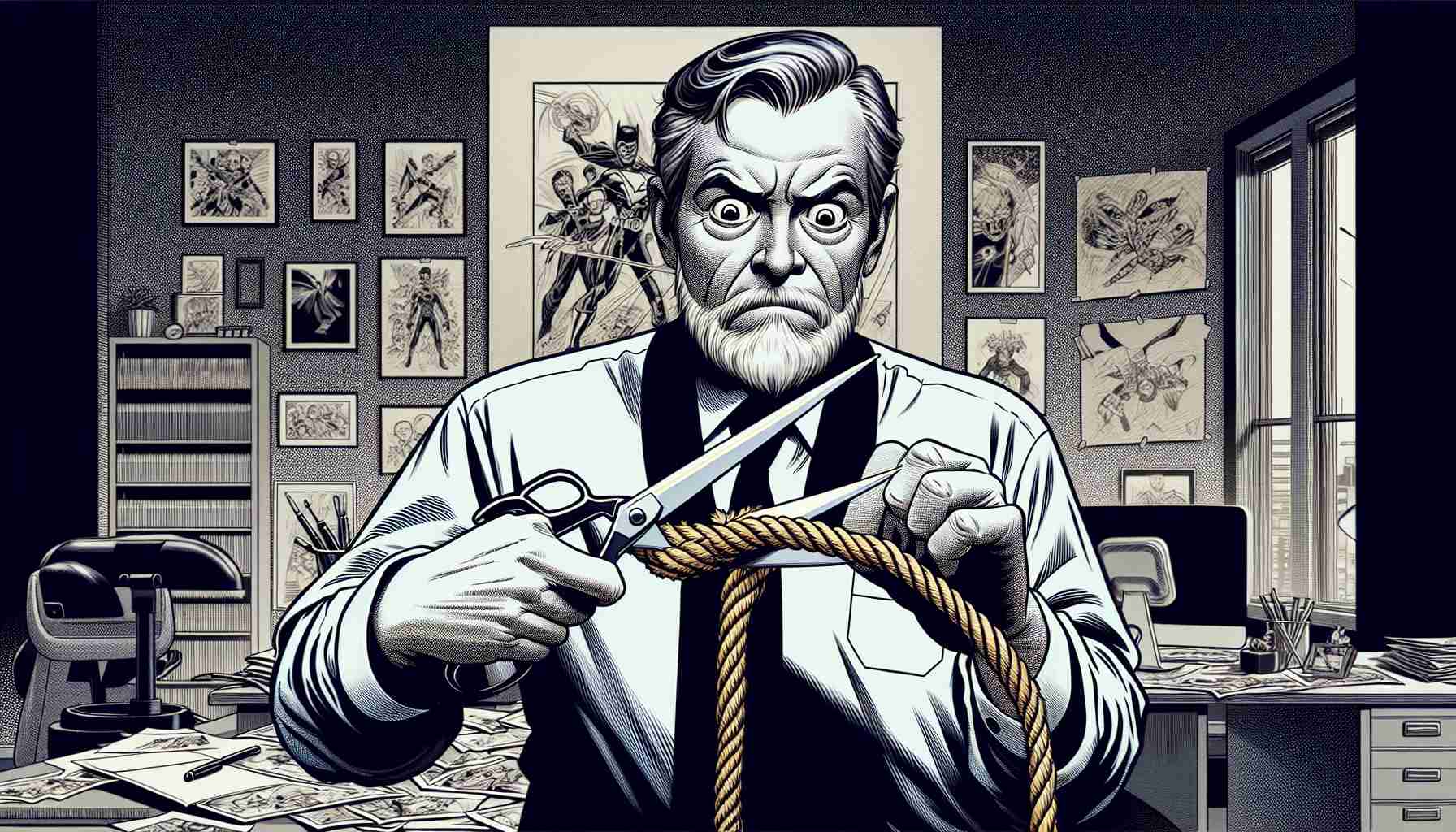- Rob Liefeld, known for creating Deadpool and Cable, is leaving Marvel Comics after over 30 years.
- He felt excluded at the New York premiere of “Deadpool & Wolverine“, notably being left out of key events.
- Significant grievances include Marvel altering the credits of Wolverine, affecting a friend’s legacy, and ignoring his request for special recognition.
- Liefeld expressed discontent with Marvel for marginalizing creators despite their contributions to blockbuster films.
- The lack of response from Marvel to his expressed concerns solidified his decision to part ways.
- His exit highlights the tension between comic creators and major studios over value and recognition.
Renowned comic artist Rob Liefeld, the creative force behind iconic characters like Deadpool and Cable, is parting ways with Marvel Comics after more than three decades. In a revealing podcast episode and an interview, Liefeld shared details of events leading to his decision, centering around feelings of being overlooked at Marvel’s recent Hollywood premiere event.
During the New York premiere of “Deadpool & Wolverine,” Liefeld and his family were conspicuously left out of the afterparty—a significant snub in Hollywood circles. Opportunities to interact on the red carpet went unacknowledged by Marvel Studios’ top brass, including head honcho Kevin Feige. Adding insult to injury, professional photos taken with the film’s creative team mysteriously vanished, creating a sense of deliberate exclusion.
This incident was the latest in a series of grievances for Liefeld, whose dissatisfaction began when Marvel altered the credits of Wolverine, impacting the widow of Wolverine’s co-creator, a personal friend of Liefeld’s. The mishap was exacerbated by radio silence from Marvel on his request for special recognition for his contributions.
Liefeld has voiced frustrations over creators being sidelined at Marvel, emphasizing that without the imaginative worlds they craft, blockbusters like “Deadpool” wouldn’t exist. Despite Marvel’s formal end credit recognitions, Liefeld sought the higher esteem reflected in the iconic Superman films.
The final straw seemed to be the absence of dialogue from Marvel following an email outlining his concerns, which insiders reported as poorly received. This discord has driven Liefeld to distance himself from the studio responsible for bringing his creations to life on screen.
Liefeld’s departure underscores the ongoing tension between comic creators and major studios, raising questions about how these vital contributors are valued in the filmmaking process.
Rob Liefeld’s Departure from Marvel: What It Means for the Future of Comic Book Films
Overview of Liefeld’s Departure
Rob Liefeld, famed for creating beloved characters like Deadpool and Cable, has officially distanced himself from Marvel Comics after more than three decades of collaboration. This move comes amid a series of grievances, involving both personal slights at major events and broader concerns about creator recognition in the comic industry.
Pros and Cons of Liefeld’s Departure
Pros:
– Creative Freedom: Liefeld can now explore new projects and collaborations with other studios or independent publishers, potentially bringing new, innovative stories to fans without corporate constraints.
– Highlighting Industry Issues: His departure spotlights the ongoing challenges faced by comic creators, potentially sparking industry-wide discussions and reforms about credit and recognition.
Cons:
– Loss for Marvel: Marvel loses a prolific creator whose unique style and storytelling have been vital in shaping its comic landscape. His departure may lead to a creativity gap, particularly in the portrayal of characters like Deadpool.
– Potential Fan Disappointment: Loyal fans of Liefeld’s characters and storytelling style might feel disconnected from future Marvel projects lacking his input and creative direction.
Impacts on the Comic and Film Industry
– Market Forecast: Liefeld’s exit could affect Marvel’s market standing, especially concerning projects directly tied to his creations. It may also encourage other creators to seek better recognition or alternative platforms, potentially diversifying the comic industry.
– Trends and Innovations: Expect a possible rise in independent comics and creator-led projects focusing on original storytelling, as Liefeld may influence peers to prioritize creative independence and proper recognition.
Are Creators Valued in the Filmmaking Process?
Insights: Liefeld’s departure raises crucial questions about the valuation of creators in the filmmaking process. Despite blockbuster successes, comic writers and artists often face challenges in receiving recognition commensurate with their contributions, as reinforced by Liefeld’s experiences. This may prompt studios to revisit their credit processes and public acknowledgment measures.
What’s Next for Rob Liefeld and the Characters He Created?
Predictions: With Liefeld leaving Marvel, there’s speculation about his future ventures. He may choose to join or establish independent platforms to bring new content to fans. The effects on characters like Deadpool could lead to refreshed narratives under new creative directions, distinctly separate from Liefeld’s vision.
Links to Trusted Sources for Further Information
– Marvel Comics
– DC Comics
– Image Comics
By shedding light on these developments, Rob Liefeld’s story not only underscores individual artistic journeys but also highlights pressing industry challenges that need addressing for the betterment of creators everywhere.
